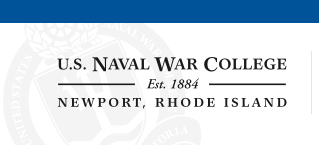
CIWAG Maritime Irregular Warfare Studies
The Maritime Irregular Warfare Studies (MIWS) are a separate collection of case studies focused specifically towards the use of irregular warfare at sea and in a maritime environment. Although still concerned with asymmetrical and indirect means, Irregular Warfare in a maritime environment has additional unique attributes and challenges associated with it. These include a range of topics related to human and political competition taking place on or below the surface of the world’s harbors, rivers, seas, and oceans. This body of research also contributes to the larger mission of the U.S. Naval War College to study, research and publish relevant materials related to sea power and the maritime environment.
“Viribus Mari Victoria.”
-

The Russian Maritime Arctic: Region of Great Change in the 21st Century
Lawson W. Brigham
(MIWS/02 - Maritime Irregular Warfare Studies, Book 2)
This case study focuses on the evolution and development of the critical maritime region of the Russian Arctic out into the future. It specifically considers what the Russian state may initiate in Arctic economic projects, and what aspects of this region Russia will seek to control, in what will most certainly become one of the vital ocean corridors of the world. The case highlights what factors may constitute the outlines of further development in a region that is not only important today and is emerging as a vital resource area and transport waterway, but also one that could evolve into a zone of competition, or even conflict, during this era of great power rivalry.
The author explores important insights into how Russia may develop its Arctic maritime capabilities and use this region as a springboard to further Russian maritime power, as well as overall economic strength.
-

Sea Shepherd: The Evolution of an Eco-Vigilante to Legitimized Maritime Capacity Builder
Claude Berube
(MIWS/03 - Maritime Irregular Warfare Studies, Book 3)
This case study focuses on the evolution and development of a non-state group, Sea Shepherd, in the maritime domain. While some might argue that this organization is too small to warrant the attention of the U.S. Navy, others, including the author, argue that its cross-jurisdictional activities and international reach provide important insight into how other groups, or even states, with small maritime capabilities, might challenge international maritime norms.
-

Water Wars: The Brahmaputra River and Sino-Indian Relations
Mark Christopher
(MIWS/07 - Maritime Irregular Warfare Studies, book 7)
Although we most often think of water conflicts in terms of access to drinking water, the reality is that most water is needed for industrial and agricultural purposes; when rivers run dry, crops fail and communities face famine and starvation even in some of the world's dampest places. Moreover, in some countries, internal conflicts exacerbate the issue of who has access to water and, in others, state-to-state friction over dams and irrigation water has spilt over into armed clashes. The issue of access to and control of water becomes even more acute in states in which there is an ongoing conflict or in states that are trying to transition from conflict to stability.
-

Piracy
Martin Murphy
(MIWS/05 - Maritime Irregular Warfare Studies, book 5)
Piracy, by Dr. Martin Murphy, examines the security challenges created by piracy around the Horn of Africa. Murphy examines the linkages between piracy and weak states, in addition to considering the threat piracy poses to shipping and global trade. In particular, he argues that Somali pirates have proved to be masters of adaptation, both strategically and tactically, as they exploit the chaos within Somalia and in the international maritime order. Moreover, Somali piracy cannot be seen in isolation from the wider geostrategic issues of free movement and safe passage to trade between Europe and Asia, and the shipment of oil from the Arabian Gulf to the rest of the world.

